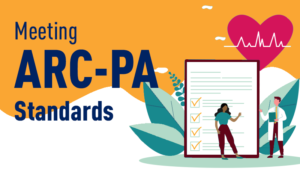Educator-to-Educator Tips & Strategies
Find out how your peers are making the most of Aquifer cases and teaching tools.
Find out how your peers are making the most of Aquifer cases and teaching tools.

By: Laurel Miller, PA-C | Assistant Professor – Directo … Read more

Students provide consistently high rankings for Aquifer as reported in our five-star rating feedback data, but how and when cases are integrated into the curriculum can have a significant impact on their learning. Find out what themes emerged when we ask students what methods are most effective–and discover practical tips for assigning Aquifer cases based on student feedback.

WISE-OnCall is used by programs across medical and health professions education to help learners diagnose and manage clinical situations they are likely to encounter on clinical clerkships, advanced sub-internships, and during the transition to residency or practice. Here are some successful integration strategies that we’ve heard from faculty users…

Touro University California Physician Assistant Program has been utilizing Aquifer cases since 2019. Originally, the cases were assigned to clinical year students to fill knowledge gaps and remediate rotations. Clinical year students found reviewing concepts in Aquifer cases during the virtual rotation block very valuable and found that cases improved in-person patient encounters.

WISE-OnCall is used by programs across medical and health professions education to help learners diagnose and manage clinical situations they are likely to encounter on clinical clerkships, advanced sub-internships, and during the transition to residency or practice. Here are some successful integration strategies that we’ve heard from faculty users…

We all know that every student will have a slightly different experience in each of their supervised clinical practice experiences (SCPEs). At our program, we’ve been using Aquifer cases to augment learning, build key communication skills, and supplement clinical experiences to meet ARC-PA standards.

We all know that every student will have a slightly different experience in each of their supervised clinical practice experiences (SCPEs). At our program, we’ve been using Aquifer cases to augment learning, build key communication skills, and supplement clinical experiences to meet ARC-PA standards.

WISE-OnCall is used by programs across medical and health professions education to help learners diagnose and manage clinical situations they are likely to encounter on clinical clerkships, advanced sub-internships, and during the transition to residency or practice. Here are some successful integration strategies that we’ve heard from faculty users…

WISE-OnCall is used by programs across medical and health professions education to help learners diagnose and manage clinical situations they are likely to encounter on clinical clerkships, advanced sub-internships, and during the transition to residency or practice. Here are some successful integration strategies that we’ve heard from faculty users…

Whether you’re searching for ways to engage students in virtual learning, revamping a stale lecture, or building a new didactic session, flipping the classroom around Aquifer cases is a powerful way to engage your students and help case-based learning stick. Check out different ways that medical educators are integrating Aquifer cases into their pedagogy…

In our 12-week pediatrics course for first-year PA students, we use Aquifer cases as a framework for four of our eight didactic sessions. Each Aquifer session includes an in-class lecture that covers the “don’t miss” diagnoses and difficult concepts for the topic area, followed by the students completing the related Aquifer case and the Aquifer Case Analysis Tool worksheet independently.

We all know that every student will have a slightly different experience in each of their supervised clinical practice experiences (SCPEs). At our program, we’ve been using Aquifer cases to augment learning, build key communication skills, and supplement clinical experiences to meet ARC-PA standards.

Many educators are wondering how to meaningfully engage their students in distance learning activities that create community and allow them to practice important patient care skills (while not seeing patients). While I have been doing peer-to-peer consults with educators around the country about using Aquifer cases in their curriculum, I stumbled into a helpful reframe that seems to be unlocking people’s creativity: Aquifer cases (yep…more than 170 of them!) are virtual standardized patients. Wait…what?
Notifications